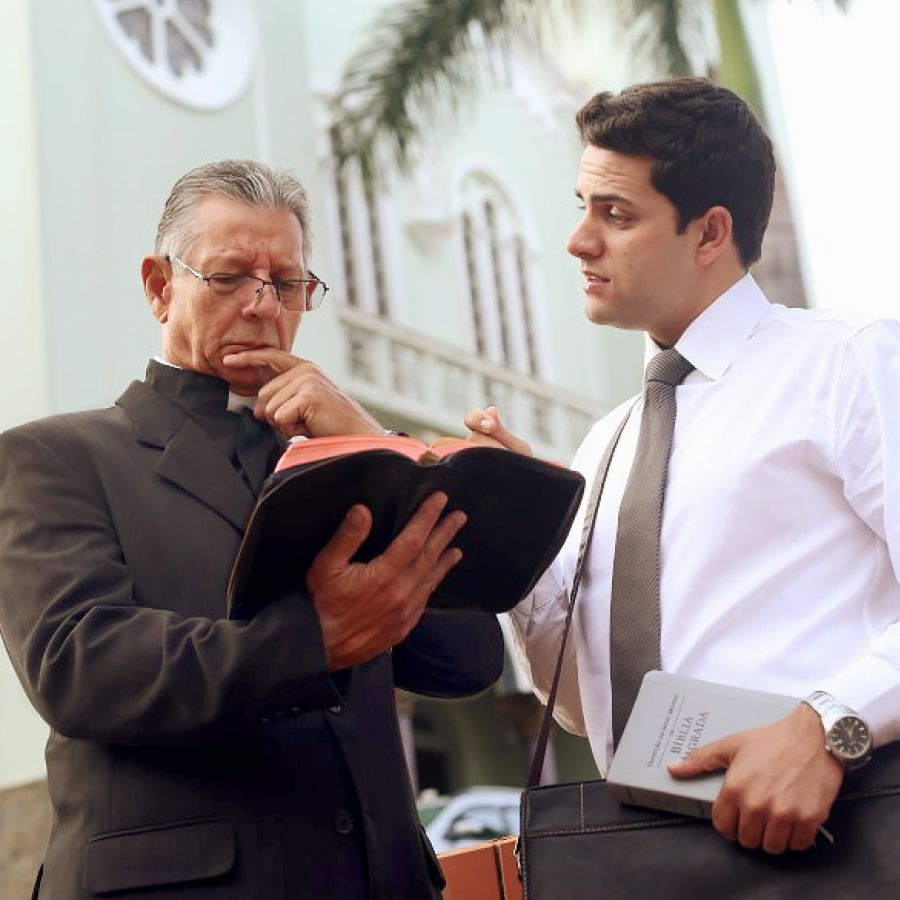APọl agbạ ni amheremhị omheeraam mọ odị ghisigh ugheel ekpạr dị rokạgh olhoghi r’aghisigh ikpolhom awe phọ
1, 2. Uḍighi ika kụ aPọl aghị bọ Jeruselem, kụ ighẹn ipaanhaạn kụ edị odị kasoman epẹ phọ?
1Bạl onhụ English
2 Bạl onhụ English
“Bidị Uboom Ni Enaạn” (Iiḍighi 21:18-20a
3-5. (a) Abuọ anhiạn r’aPọl kụ uukpomhoghan bọ epẹ Jeruselem, kụ ughaạph eeghe? (b) Yira otuughạ eeghe esi araghaạph phọ aPọl r’ikumor awe phọ orọl bọ Jeruselem oghaạph bọ?
3 Bạl onhụ English
4 Bạl onhụ English
5 Bạl onhụ English
Ibadị Okiọm Ni Ghisigh Omoọgh ‘Ophugh Esi Iilhogh Phọ AMozis’ (Iiḍighi 21:20b, 21)
6. Uḅenhị Pọl ilọ eeghe iiḅaghamhị?
6 Bạl onhụ English
7, 8. (a) Ḍighẹn aḍiitughiạn dị ii/leeny kụ edị ibadị aKristẹn phọ orọl bọ Judia omhoọgh? (b) Uḍighi ika kụ omhoọgh aḍiitughiạn phọ aḍiẹn phọ i/mạ bọ mọ bidị u/ḍighi Kristẹn dị okpẹ oḍuom olhoghi?
7 Bạl onhụ English
8 Bạl onhụ English
“Ipẹ Ogbaạm Bọ Nyinạ Okpẹ Ni” (Iiḍighi 21:22-26)
9. APọl atughemhị eeghe dị egbolhomaam Olhogh phọ aMozis?
9 Bạl onhụ English
10. Eeghe ephoghom dị eeleeny kụ edị aPọl amhoọgh mem dị rokaạph ilọ Olhogh phọ r’iḍun?
10 Bạl onhụ English
11. Ikumor awe phọ uḅenhị Pọl mọ aḍighi eeghe, kuolọ odị mu/meera ni bịn oḍighi eeghe? (Miịn igẹ dị edi ude.)
11 Bạl onhụ English
12. Ika kụ idị aPọl aḍeenhaan mọ onọ aakolhobian ni onhaghanhạn ikumor awe phọ?
12 Bạl onhụ English

When no Scriptural principles were violated, Paul yielded. Do you?
“O/kpeanaạn Mụn Orọl” (Iiḍighi 21:27–22:30)
13. (a) Uḍighi ika kụ abuniin abuọ aJu phọ oghaghạm bọ olhoghi Pọl pạ otu iiḅereghị phọ? (b) Uphẹl ika ghuḍum aPọl?
13 Bạl onhụ English
14, 15. (a) APọl aghaạph eeghe kụ aḅenhị buọ aJu phọ? (b) Uw-emhụ abuọ eghạm mọ aRom aḍighi eeghe olhegheri iyaạr phọ eḍighi bọ kụ abuọ aJu phọ oghaghạm bọ olhoghi iboom Pọl?
14 Bạl onhụ English
15 Bạl onhụ English
“Mị Onyọ AFarisi” (Iiḍighi 23:1-10)
16, 17. (a) Kaạph ipẹ emite bọ mem mọ aPọl aḅaanhaạn bọ ikpolhom awe phọ. (b) Ika kụ idị aPọl aphighi eḍeenhaan osooromhi aloor mem mọ okpor bọ onhụ phọ odị?
16 Bạl onhụ English
17 Bạl onhụ English

Like Paul, we seek common ground when speaking to those of a different religious background
18. Uḍighi ika kụ aPọl aḅẹm bọ mọ onọ onyọ aFarisi, kụ ika kụ idị yira kotuughaạny nyodị mem dị yira osoman odọ asidọl phọ iphẹn phọ?
18 Bạl onhụ English
19. Uḍighi ika kụ oruonhụ asoor bọ siphẹ ookpomhoghan ikpolhom awe phọ?
19 Bạl onhụ English